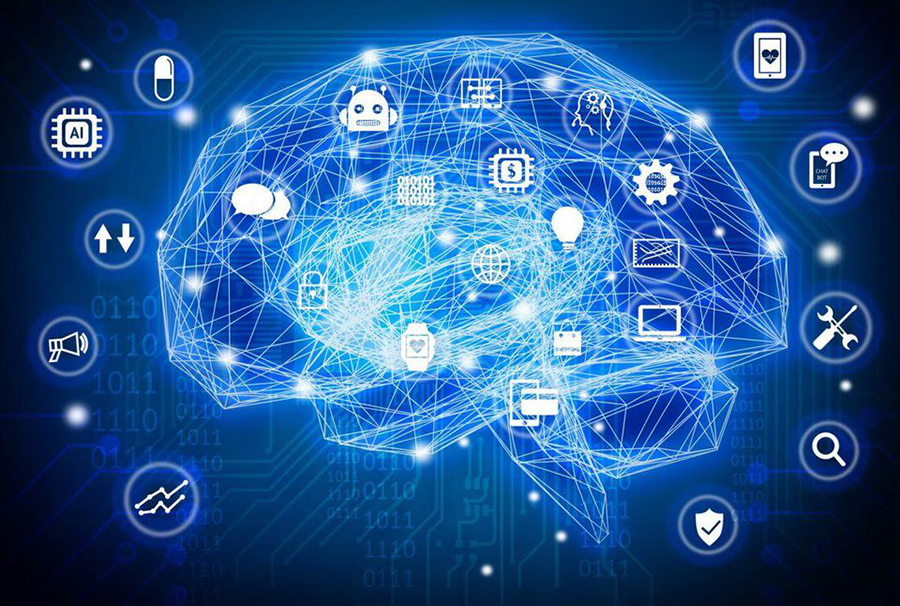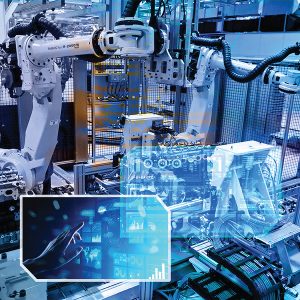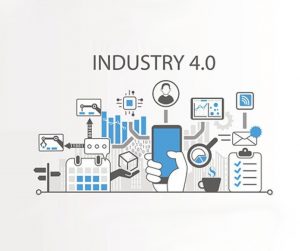Artificial intelligence (AI) has made quite a buzz in every field, be it information technology, data engineering, construction or manufacturing. AI is defined as, “Intelligence demonstrated by a virtual aspect or a machine.” The actual depth of the concept is far too big to comprise in a single write-up since it keeps evolving as researchers and engineers explore it.
What makes Artificial Intelligence to stand out?
In layman terms as any other program, AI primarily works on a set of rules predefined popularly known as algorithms. These set of rules help the program, to decide the operation it needs to perform upon the inputs.
But what separates AI from any other learning program is its ability “think and learn” for itself from given data. Artificial Intelligence basically means intelligence simulated through programs and logical controls to have insights and decision making ability based on the available data. Another differentiating factor for AI is the speed at which data is processed. It is way faster than what humans can imagine and comprehend, and hence AI allows itself faster actions to solve the challenge with any level of complexity.
Professor David Gelernter of Yale University writes in Chicago Tribune that if “Once artificial minds achieve the equivalence of the average human IQ of 100, the next step will be machines with an IQ of 500, and then 5,000. We don’t have the vaguest idea what an IQ of 5,000 would mean. And in time, we will build such machines–which will be unlikely to see much difference between humans and houseplants.” This gives us a glimpse of where AI is headed altogether.
How is Artificial Intelligence changing manufacturing Industry?
As the acceptance of Industry 4.0 concept grows, adoption of AI gears up and seems promising owing to its ability to learn from data input to take corrective actions carried out by humans.
Fundamentally, AI works on accuracy of data input. That is, AI might wrongly interpret the input data and trigger false alarms. This is when it needs human intervention to differentiate the false alarms from actual defects. Once such differentiation is made for corrective actions by human inputs, the AI program becomes self-sufficient for taking the decisive actions accurately. Particularly in the manufacturing industry, the implementing engineering teams need to have an in-depth knowledge of the product design, manufacturing processes, and how to leverage AI for these processes.
Controlling the production process and streamlining is the major application area for AI across the industry. AI has played a prominent role in controlling the idle time, reducing it and hence eliminating the bottlenecks in machine working time on a typical shop floor. This is a major breakthrough for shops with complex layouts and where shop floor engineers struggle to decide the optimum process flow and reduce the time spent for any job at any particular shop.
Certain verticals in manufacturing industry have already implemented AI for controlling their processes. For instance, steel industries like Fero Labs’ showed 15% reduced in loss of steel during mill scaling with AI. Alongside, companies like Hitachi, Nokia, and Autodesk etc. have also leveraged AI and noted process optimization, reduced utilization of time, material and costs.
Advantages of Artificial Intelligence, Collaboration between human and Machine
Manufacturing industry processes are largely semi-automatic that is part of the process are automatic and part is done by humans – like sending commands, loading and un-loading of jobs and other of the kind. These human processes are prone to errors. And data processing speed is far lower than what machine can do.
Such aforementioned challenges are eliminated by AI and provide efficient work output. It can calculate large amount of data in comparatively very less time, even when doing a repetitive task its accuracy is decreased and it doesn’t have to endure physical or mental fatigue.
But for effective implementation of AI a human operator is required to monitor the actions taken by the program. It needs extensive understanding of the processes in progress and direct AI once at the start. A proper follow-up with AI program and Machine Learning, an overall betterment of the process can be seen overtime.
How do you implement AI?
Implementation of AI requires a dense interconnected structure between manufacturing, control, data processing and data management (as old data is constantly employed to generate insights through analytics). Implementation demands all the departments to work in harmony continuously, exchange information for betterment, and obtain the benefits out of it. It requires large arrays of data storing and processing units along with devices which incorporate AI into processes.
Artificial Intelligence, Current Scenario
In today’s fast paced world and cut-throat competition between companies globally all are thriving to obtain maximum profit out of present resources. There are numerous companies moving in direction of Industry 4.0. A lot of companies have already implemented basic AI algorithms for research and development and have seen remarkable results.
Simultaneously there are a considerable number of verticals that verticals have are still on the transition period. But the fact stands tall that implementation of AI will ensure positive impacts on large scale in production industry as it provides vast number advantages over conventional methods.
Image Courtesy: https://www.forbes.com/






